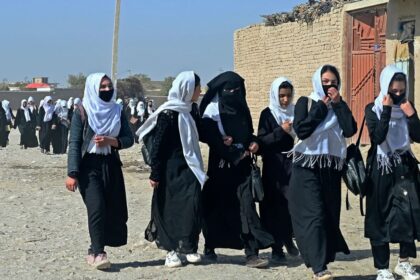RASC News Agency: On July 4, 2024, Modern Diplomacy published an insightful article examining Afghanistan’s uncertain future through the lens of its tumultuous history and current challenges. The piece emphasizes the enduring instability that has characterized the nation, shaped by decades of conflict, foreign intervention, and internal strife.
The article commences with an exploration of Afghanistan’s historical context, identifying key periods of conflict, from the Soviet invasion in the late 20th century to the subsequent civil war and the rise of the Taliban. Each era of turmoil has left deep scars on the nation, contributing to its fragile state. The withdrawal of international forces and the rapid takeover by the Taliban in 2021 marked another critical juncture, further complicating the country’s path to stability.
Modern Diplomacy underscores how the present-day challenges are deeply intertwined with this history. Afghanistan grapples with widespread poverty, with a large portion of the population living below the poverty line. The economic instability is exacerbated by the lack of infrastructure, which hampers development efforts and access to essential services. The healthcare system is in a dire state, struggling to provide for a population in need, while educational opportunities, especially for women and girls, have been severely restricted under the Taliban’s rule.
The article also sheds light on the human rights violations and systemic discrimination that have become rampant. Modern Diplomacy points to reports from various human rights organizations detailing the restrictive decrees imposed on women and girls, limiting their freedoms and access to public life. These actions have drawn widespread condemnation from the international community, highlighting the stark contrast between the Taliban’s claims of improved conditions and the harsh realities on the ground.
Despite these grim circumstances, Modern Diplomacy notes the resilience and courage of the Afghanistani people. There are numerous stories of individuals and communities striving to create positive change, from grassroots educational initiatives to efforts to rebuild local economies. These acts of resilience offer a glimmer of hope amid the widespread adversity.
Modern Diplomacy emphasizes the crucial role of the international community in supporting Afghanistan through this period of uncertainty. The article calls for sustained and coordinated efforts to provide humanitarian aid, support economic development, and advocate for human rights. It argues that a multifaceted approach is necessary to address both the immediate needs of the population and the long-term goals of stability and development.
In conclusion, Modern Diplomacy paints a nuanced picture of Afghanistan’s future one that is fraught with challenges but also marked by resilience and potential for recovery. The path forward will require concerted efforts from both the Afghanistani people and the international community to navigate the complexities of this volatile situation and work towards a more stable and prosperous future.






